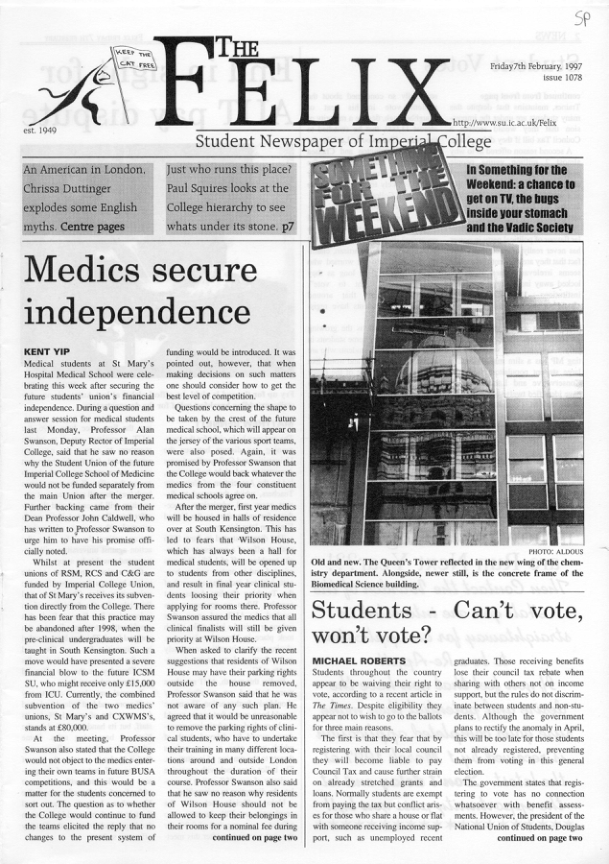HEFCE cuts funding to low-rated departments
The Higher Education Funding Council for England has decided on the weightings it will use for the distribution of funds to universities and colleges for the coming year. A big difference this year will be that none of the Ł680m will be going to departments rated at 1 or 2 in he recent Research Assessment Exercise.
The decision to cut the low-rated departments out of the funding formula was made when the two bodies that used to fund higher education, the University Funding Council and the Polytechnics Funding Council were merged to form HEFCE a few years ago. HEFCE originally continued to fund departments rated at 1 or 2 so that they could improve their rating in time for the funding watershed. A spokesman from HEFCE said that any other way of doing things would have been ‘unfair’ on the old polytechnics which may not have had research departments of particularly high standards when they became universities. An additional fund was set up for this purpose, the Development Research (Dev-R), although this is now being phased out.
When asked whether not providing money to low-rated departments would leave them stranded and therefore not able to become a ‘good’ department, the HEFCE press officer, Philip Walker, stressed the need to be selective about its decisions due to their limited budget. He said that there was no point in spreading money thinly over all the universities but instead to concentrate it on the ones that carried out the best research since that was the best way to benefit society. This view is echoed by Dr. Rodney Eastwood, finance planning officer at Imperial College, which was amongst the top-scoring colleges in the country. He said there was "no point in giving money to second best research" and that it would be better spent at "international" departments such as the ones at IC. As a result of the last RAE, Imperial would not be affected by HEFCE’s decision.
The reaction from universities which didn’t do score so well last year has been critical, as expected. Although they cannot get much money from HEFCE, they are looking to a replacement for the Dev-R, the exact details of which have not yet been worked out according to Philip Walker. The Times Higher Education Supplement quoted responses from some of these universities, among them the University of Luton and the University of Central Lancashire. They thought that the move by HEFCE was ‘grossly unfair’ and generally condemned the action.
HEFCE have floated the possibility that there may be new areas of research to takre in to account in the future, but that would be considered nearer the time. It is possible that the new universities which may be undertaking the ‘new areas’ of research could then get more funding. Until then, the future of their research funding is not entirely certain.





